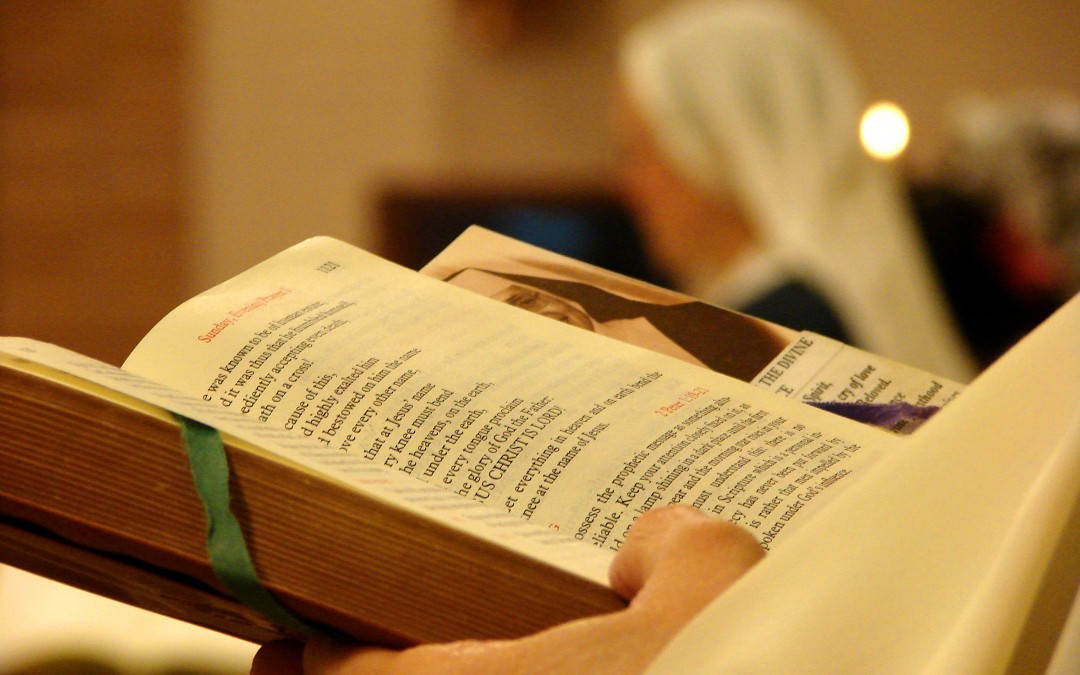

Hittorp, in the sixteenth century, entitled his collection of medieval liturgical works "De Catholicæ Ecclesiæ divinis officiis ac ministeriis" (Cologne, 1568). Thus Walafrid Strabo, Pseudo-Alcuin, Rupert de Tuy entitle their works on liturgical ceremonies "De officiis divinis". The expression "officium divinum" is used in the same sense by the Council of Aix-la-Chapelle (800), the IV Lateran (1215), and Vienne (1311) but it is also used to signify any office of the Church. The Greeks employ "synaxis" and "canon" in this sense. "Agenda", "agenda mortuorum", "agenda missarum", "solemnitas", "missa" were also used. "Cursus" is the form used by Gregory writing: "exsurgente abbate cum monachis ad celebrandum cursum" (De glor. "Canonical Hours", "Breviary", "Diurnal and Nocturnal Office", "Ecclesiastical Office", "Cursus ecclesiasticus", or simply "cursus" are synonyms of "Divine Office". The Divine Office comprises only the recitation of certain prayers in the Breviary, and does not include the Mass and other liturgical ceremonies. This expression signifies etymologically a duty accomplished for God in virtue of a Divine precept it means, in ecclesiastical language, certain prayers to be recited at fixed hours of the day or night by priests, religious, or clerics, and, in general, by all those obliged by their vocation to fulfil this duty. Other Feasts of the Blessed Virgin Maryġ7.("Liturgy of the Hours" I. September 15: Feast of the Seven Sorrowsġ6. Feast of the Ascencion until Pentecostġ5. Paschaltide (Except Feasts of the Blessed Virgin Mary)ġ0. Season of the Nativity, Feast of Corpus Christiĩ. Ferias from January 14 to Lent and after Pentecostĥ. Ordinary Sundays, Second and Third Class Feastsģ. Two ribbons Divine Office Table of Contents INTRODUCTION PRAYER BEFORE THE DIVINE OFFICEĬompline TONES FOR COMPLINE HYMN “TE LUCIS”ġ. In timeless Latin with parallel English translations. Melodies in Gregorian notation for those who chant the office in common.

The prayers to be said before and after reciting the Divine Office
#Catholic tv divine office how to#
An 11-page Introduction explaining the Divine Office and how to pray it, including guidelines on how to interpret the psalms in a Catholic manner Our Lord, our Lady, and the Saints prayed these psalms. Join your voice with the Church and her members: This is better than private prayer it’s the prayer of the entire Mystical Body because you pray with one heart with the millions of other clerics, religious and laymen around the world who have prayed and are praying these exact same prayers, AND because you adopt the intentions of the psalmist as you pray.Ī Better Participation on the Liturgy: When understood correctly (this edition has a short explanation preceding each psalm), these are the intentions for which Holy Mother Church wants us to pray for ourselves, for the Church and for all the members of the Mystical Body of Christ. Prime is the perfect Morning Prayer, Compline the perfect night prayer, and Sext is for the middle of the day. Prayers for all hours: Here you have the most critical hours of the Divine Office for the layman in the world.

But the Church gave us the answer from the very beginning when she structured her official prayer around a framework of the psalms prayed eight times a day so that within one week, all 150 psalms are said. Officium Divinum: What does it gain a man to have his whole life perfectly organized but to lose his soul? It’s so easy to lose sight of God in our busy world. Latin pronunciation guide bookmarker included. Divine Office includes everything for the Hours of Sunday Lauds, Prime, Sext, Vespers, and Compline Prime, Sext, and Compline for each other day of the week.


 0 kommentar(er)
0 kommentar(er)
